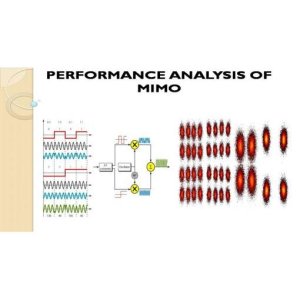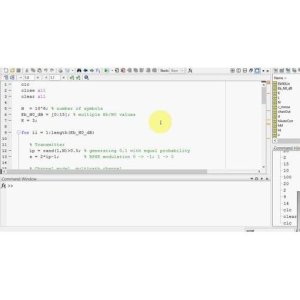Enhanced Q-Factor Enhancement in Free Space Optical Communication through Filtering and Amplification
Problem Definition
The existing problem in the field of Free Space Optical (FSO) communication channels in Malaysia lies in the impact of haze conditions on attenuation levels. The increased attenuation due to haze leads to a higher level of noise being introduced into the system, which ultimately results in a high Bit Error Rate and degraded quality factor. This limits the efficiency and overall performance of the communication channel. Therefore, there is a pressing need to address these limitations and problems by introducing a new system that can minimize attenuation and noise, leading to an efficient and high-quality communication system. By identifying and mitigating these key pain points, the overall reliability and effectiveness of FSO communication channels can be significantly improved in hazy conditions.
Objective
The objective is to enhance the efficiency and quality of Free Space Optical (FSO) communication systems in Malaysia by addressing the issues of increased attenuation and noise caused by haze conditions. This will be achieved by introducing an optical filter to reduce noise, implementing amplification techniques to boost the signal, and analyzing the effectiveness of pre-amplification and post-amplification methods in minimizing attenuation and improving the quality factor. The simulation of the proposed work will involve setting up an FSO link in hazy conditions and evaluating the system's performance using parameters such as optical power, transmitter aperture diameter, receiver aperture diameter, and beam divergence. Additionally, a Bessel Optical filter will be utilized to reduce noise due to attenuation, and the impact of weather conditions on transmission quality will be visualized using BER analyzers and power meters. Ultimately, the goal is to create a more efficient FSO communication system with lower attenuation and higher quality under varying weather conditions.
Proposed Work
The proposed work aims to address the issue of increased attenuation and noise in Free Space Optics (FSO) communication systems under hazy conditions. By introducing an optical filter to reduce noise and implementing amplification techniques to boost the signal, the goal is to enhance the system's efficiency and quality. Two amplification techniques, pre-amplification and post-amplification, will be analyzed to determine the most effective approach in minimizing attenuation and improving the quality factor. The simulation of the proposed work will involve setting up an FSO link in hazy conditions, utilizing parameters such as optical power, transmitter aperture diameter, receiver aperture diameter, and beam divergence to evaluate the system's performance. Additionally, a Bessel Optical filter will be implemented to reduce noise due to attenuation, and the system's performance will be analyzed using BER analyzers and power meters to visualize the impact of weather conditions on transmission quality.
By combining optical filtering and amplification techniques, the proposed work aims to create a more efficient FSO communication system with lower attenuation and higher quality under varying weather conditions.
Application Area for Industry
This project can be utilized in various industrial sectors such as telecommunications, defense, and aerospace. In the telecommunications sector, the proposed solutions of implementing optical filters and amplification techniques can help in reducing noise and improving signal quality in Free-Space Optical (FSO) communication systems. This can lead to enhanced data transmission rates and reliability. In the defense sector, where secure and efficient communication is crucial, these solutions can aid in maintaining clear and uninterrupted communication even in challenging environmental conditions such as haze. Additionally, in the aerospace industry, FSO communication systems can benefit from these advancements to establish reliable and fast communication links between satellites and ground stations.
Overall, the implementation of optical filters and amplification techniques can address the challenge of attenuation and noise in FSO communication channels, leading to improved system efficiency and performance across various industrial domains.
Application Area for Academics
The proposed project can greatly enrich academic research, education, and training in the field of Free Space Optical (FSO) communication systems. By introducing optical filters and amplification techniques to reduce noise and attenuation, the project aims to enhance the quality factor and minimize the Bit Error Rate (BER) in FSO communication channels. This research can provide valuable insights into improving the efficiency and performance of FSO systems, especially in hazy conditions where visibility loss can affect signal transmission. The relevance of this project lies in its potential applications for innovative research methods, simulations, and data analysis within educational settings. Researchers, MTech students, and PHD scholars in the field of optical communication can benefit from the code and literature generated by this project to further their studies and experiments.
By utilizing the proposed algorithms such as Bessel optical filters and optical amplifiers, researchers can explore new ways to optimize FSO systems in adverse weather conditions and achieve higher data transmission rates. The project covers technology related to optical filtering and amplification in FSO communication systems, offering a practical approach to improving signal quality and reducing noise interference. Researchers can use the simulation results to analyze the impact of different parameters on FSO performance, such as attenuation, aperture diameter, and beam divergence. By incorporating pre-amplification and post-amplification techniques, the project provides a comprehensive study of signal enhancement methods in FSO channels. In conclusion, the proposed project presents a valuable opportunity for academic research, education, and training in the field of optical communication systems.
By addressing the challenges of noise and attenuation in FSO channels, the project offers potential solutions for improving signal quality and minimizing errors. Researchers and students can leverage the findings of this project to explore new avenues for research and development in the field of FSO communication technology. The future scope of this project includes further optimization of amplification techniques and integration of advanced signal processing algorithms to enhance the overall performance of FSO systems.
Algorithms Used
The Bessel optical filter and optical amplifier algorithms are used in the project to enhance the performance of the Free Space Optical (FSO) communication system. The Bessel optical filter is implemented to reduce noise by rejecting inputs above a certain frequency or outside a small band of frequencies near the signal. This helps in improving the quality of the signal and reducing Bit Error Rate (BER). On the other hand, the optical amplifier is used to boost the signal strength, minimizing attenuation and improving the quality factor of the system. In the proposed work, pre-amplification and post-amplification techniques are analyzed.
In pre-amplification, the optical amplifier is implemented before the output is transmitted through the FSO channel, while in post-amplification, it is implemented after the FSO channel. By using these algorithms, the project aims to achieve a system with low attenuation, high quality, and improved efficiency in data transmission through FSO channels.
Keywords
SEO-optimized keywords: Free Space Optical Communication, Haze Weather Conditions, Optical Filter, Noise Reduction, Amplification Technique, Signal Boosting, Attenuation Minimization, Quality Factor, Bit Error Rate Reduction, Adverse Atmospheric Conditions, Wireless Communication, Communication Technologies, FSO Communication Systems, Signal Quality, Communication Efficiency, Optical Communication, FSO Communication Optimization, Haze Weather Mitigation, Optical Signal Amplification, Signal Enhancement Techniques, FSO Communication Performance
SEO Tags
optical filter, noise reduction, signal amplification, signal boosting, attenuation minimization, quality factor improvement, bit error rate reduction, FSO communication, haze weather conditions, communication performance, wireless communication, communication technologies, optical communication, signal enhancement techniques, FSO communication optimization, adverse atmospheric conditions, FSO communication systems, signal quality, communication efficiency, optical signal amplification, FSO communication in haze, FSO channel analysis, weather impact on communication, optical receiver, BER analyzer, electrical power meter, signal transmission evaluation, laser communication, communication system optimization, optical signal processing, signal noise reduction, simulation analysis, transmission quality enhancement, optical filter frequency, FSO link simulation, optical amplifier techniques, post-amplification, pre-amplification, atmospheric attenuation, receiver aperture diameter, optical power meter, FSO performance evaluation, communication technology research, free space optical communication.
| Shipping Cost |
|
No reviews found!


















































No comments found for this product. Be the first to comment!